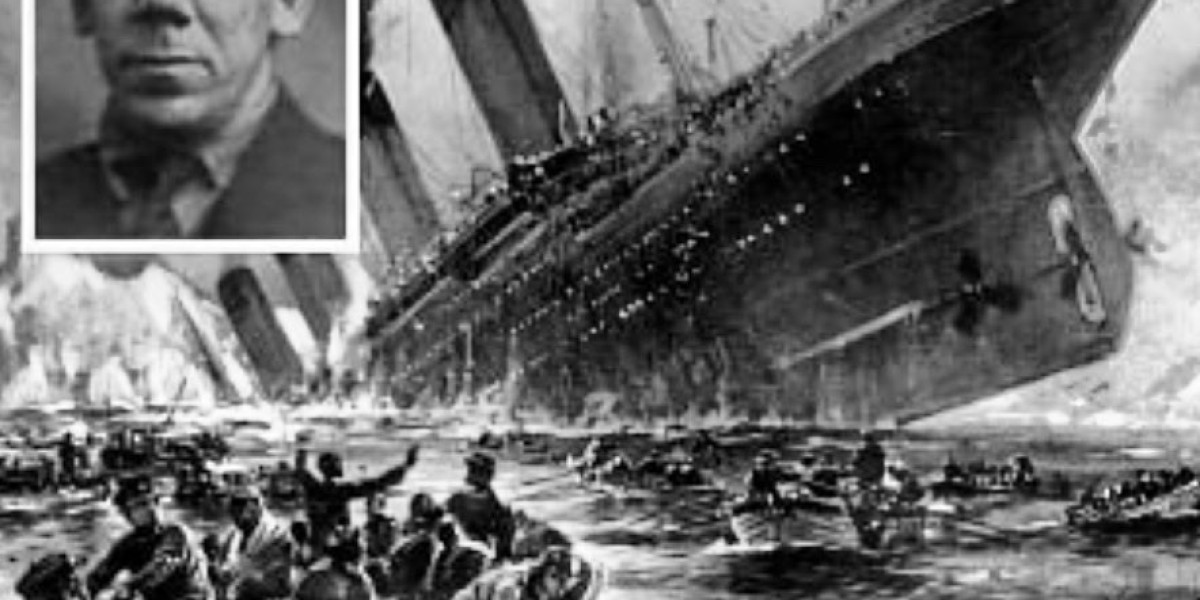Introduction: The sinking of the Titanic in 1912 is a tragic tale etched into history, filled with stories of heroism and survival. Among the unlikely survivors was Charles Joughin, the chief baker on board. His account, revealed during the British Titanic inquiry, paints a unique picture of survival against all odds.
Joughin's Testimony: During his interrogation by Mr. Cotter, Joughin described the harrowing moments of putting children into lifeboats. When asked about his decision not to enter the lifeboat himself, Joughin justified it, stating he didn't want to set a bad example for the other men. Instead, he kept his composure, even returning to his cabin for a drink after realizing his boat had left.
The Commissioner questioned the nature of the drink, emphasizing its importance in the context of Joughin's survival. Mr. Cotter suggested that Joughin's choice to have a drink might have played a role in saving his life. This intriguing detail sets the stage for the unusual circumstances surrounding Joughin's survival.
Alcohol and Hypothermia: In the freezing waters of the North Atlantic, a drunk person is typically more susceptible to hypothermia due to vasodilation, where blood vessels dilate and blood rushes away from vital organs. However, the temperature that night was approximately -2°C (26.4°F), providing a unique set of conditions.
Joughin's calculated calmness in the water and his ability to withstand the extreme conditions are attributed to the counterbalancing effect of the cold sea on his intoxicated state. Unlike the typical response to alcohol, the frigid water constricted his blood vessels, potentially saving him from the perils of hypothermia.
Survival in the Frigid Waters: Joughin spent an astonishing two hours in the icy sea before managing to climb aboard an overturned lifeboat. His resilience and eventual rescue by a passing lifeboat add layers to the extraordinary tale of survival.
Conclusion: Charles Joughin's improbable survival on the Titanic offers a unique perspective on the complex interplay between alcohol, hypothermia, and human resilience. His story serves as a testament to the unpredictable nature of survival in the face of one of history's most infamous maritime disasters.
Testimony of Charles Joughin, cont.
Examined by Mr. COTTER.
6226. Are there any bulkhead doors in the alleyway outside your room?
- One immediately outside.
6227. Is that forward or aft?
- Forward of my room.
6228. And the water was coming from forward?
- The water was coming from forward.
6229. So that if that bulkhead door had been closed it might possibly have kept the water out?
- The door was not closed, but just about that time I saw two men coming and they said they were going to close it, but I did not see it closed.
6230. Was it closed after they said that?
- I do not know; I walked upstairs.
6231. You went up on deck?
- Yes.
6232. Your boat you told us was No. 10, and you were in charge?
- That is the one I was sent to.
6233. You said that boat was a yard and a half from the ship's side. Was there any difficulty in getting the women into that boat?
- Yes. That was through the list to port. Under ordinary conditions there would be no difficulty.
6234. But the boat was slung away from the ship through the list?
- Yes.
6235. Did you assist to get some women into the boat?
- I assisted to get most of them.
6236. You said you went down to the next deck to bring or try to force women up. Will you tell us - did you do that?
- Yes.
6237. Who did you bring up?
- I brought up two children and the mother - and a mother and a child, and other stewards were bringing up other women.
6238. What did you do with the children when you put them into the boat?
- Handed them into the boat or dropped them in.
6239. Threw them in?
- Threw them in.
6240. And what did you do with the mother?
- We wanted to throw her in, and I think she preferred to try and step in.
6241. What happened?
- She missed her footing.
6242. What happened then?
- This steward named Burke got hold of her foot and she swung head downwards for a few minutes, but she was got into B deck. Somebody caught her into B deck - no, A deck.
6243. Did you ever see her again?
- No.
6244. The children were saved?
- The children were saved.
6245. You said that you never went into your boat. Why did not you go, seeing that you were in charge?
- I would have set a bad example if I had jumped into the boat. None of the men felt inclined to get into the boat.
6246. You simply stood back to assist the women and children to get in?
- We stood back till the Officers should give us the word, and we never got it, so that we never jumped for the boat.
6247. When you found your boat had gone you said you went down below. What did you do when you went down below?
- I went to my room for a drink.
6248. Drink of what?
- Spirits.
The Commissioner:
Does it very much matter what it was?
Mr. Cotter:
Yes, my Lord, this is very important, because I am going to prove, or rather my suggestion is, that he then saved his life. I think his getting a drink had a lot to do with saving his life.
The Commissioner:
He told you he had one glass of liqueur.
6249. (Mr. Cotter.) Yes. (To the Witness.) What kind of a glass was it?
- It was a tumbler half-full.
6250. A tumbler half-full of liqueur?
- Yes.
6251. When you were on the poop did you see anybody attempting to come up on to the poop after you - following you up?
- It was an impossibility for them to get on to the poop.
6252. Are there no ladders going on to the poop?
- But the ship was like that. (Showing.) The ladders would be astern. The people were all on the port side in one bunch. There was nobody on the starboard side; in fact you could not see.
6253. It has been stated that she turned practically perpendicular. I want to ask your opinion about that, because I think it is very important. Did you see the propellers come out of the water at all?
- She was not far out of the water at any stage that I saw.
6254. So that to say that she stood up like that - (Showing.) - would be wrong?
- It would be absolutely wrong.
6255. She simply glided away?
- She went down that fashion (Showing.) It was a glide. There was no great shock, or anything.
6256-66. She simply glided away?
- She simply glided away. [TIP Note: Numbers 6256-66 were all given to this one question in the original transcript.]
6267. When you got into the water and had swum to the collapsible boat you were pushed off, you say?
- Yes.
6268. Who pushed you off?
- I do not know.
6269. Did you say anything when you were pushed off?
- No.
6270. You made no statement to anyone?
- No.
6271. What condition were you in when you got to the "Carpathia"?
- I was all right barring my feet, they were swelled.
6272. Were you able to walk up the ladder?
- No.
6273. How did you get up?
- On my knees.








